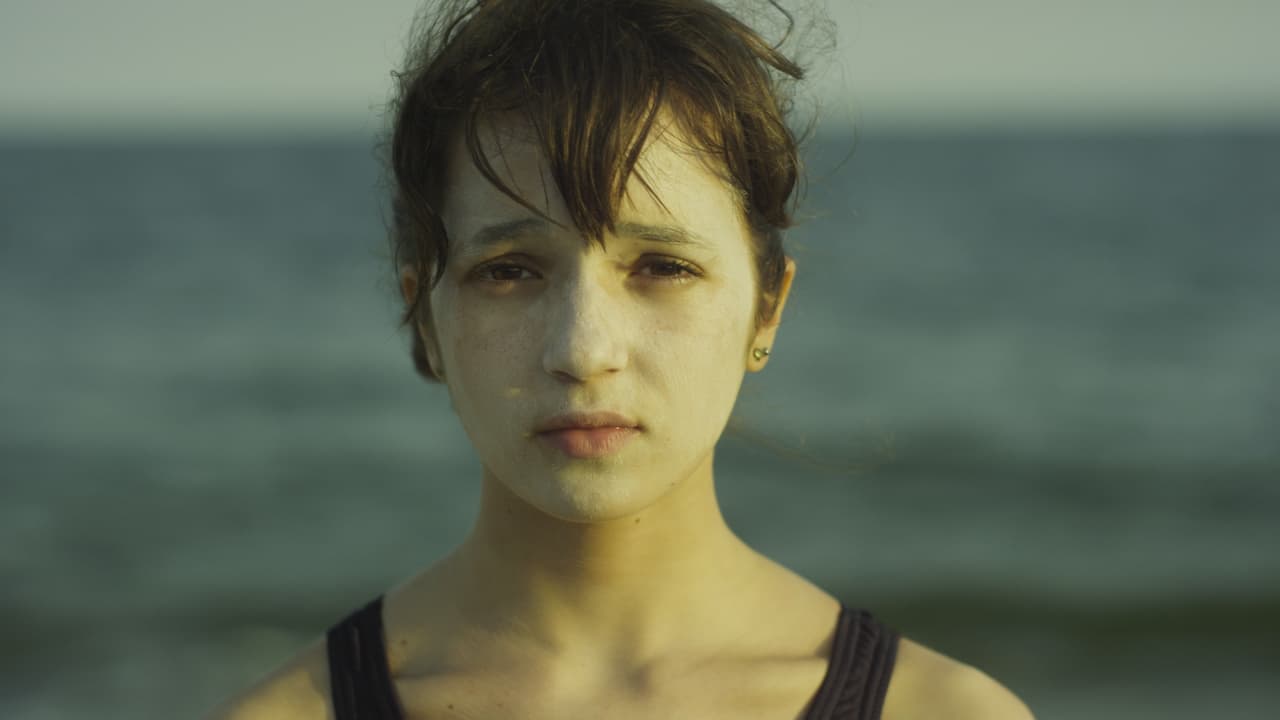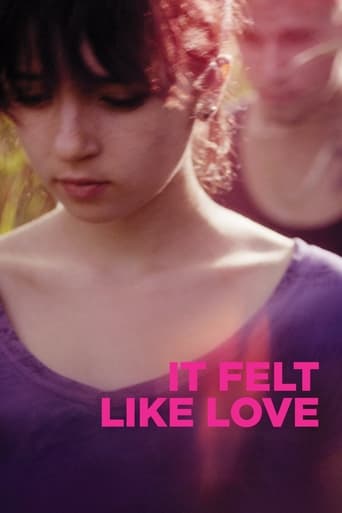Platicsco
Good story, Not enough for a whole film
Lancoor
A very feeble attempt at affirmatie action
Breakinger
A Brilliant Conflict
Ezmae Chang
This is a small, humorous movie in some ways, but it has a huge heart. What a nice experience.
rainabosniac
I watched this after having watched "Beach Rats" (which I absolutely loved and can't recommend enough) because I found Eliza Hittman to be a great storyteller and director. This movie definitely feels like a long lost cousin of "Beach Rats" and even though it gave off the same feel as BR did, I didn't find it nearly as good. To say that Eliza Hittman improved her cinematography skills would be an understatement. She definitely stayed true to the way she directs and writes these movies, and if I am to see her work again, I'll definitely recognise it.The actors delivered great performances, with such depth, that by not saying much you could understand them perfectly. This movie is definitely very slow-paced and there's not as much plot as there is thought and feeling. What first popped into mind while I was watching this was that it resembled a short-story, or rather an adaptation of one, rather than one of a novel.It still was absolutely stunning, even though, as I have already said, there was something I didn't quite like about it although I can't put my finger on it. If you want something similar, yet better and definitely more original (yes, originality was something this movie lacked) watch Beach Rats, so much better.
jimlacy2003
Like the title says this movie was..well booorrriinnng.I checked the "spoiler" box just to be safe, but really I don't give much of the "plot" here.Kind of interesting at points, reminds me of the movie "KIDS" a little.A lot of it pretty depressing really. Most of the people seem to be very down-tone, uncouth, and pretty indifferent, etc. In particular the father. He doesn't seem to care about his daughter at all. It seems to me if she just had at least one supportive person in her (the protagonist's) life, someone sane she could talk to, then she'd be doing a hell of a lot better in her life. Life sucks if you live with a bunch of zombies and in the absence of love. Maybe that was the moral of the story..?On a side note the two rave reviews about this movie appear to be shills that have never reviewed any other movie.At any rate you will probably want to skip this movie as you could probably find something much more fun to watch..
akeleman-1
From the controlled, nuanced storytelling to the inventive camera work, Eliza Hittman's 'It Felt Like Love' is a quiet stunner, and a thoroughly confident first feature. It doesn't hurt that Hittman found an incredibly gifted and fearless performer in the young lead, Gina Piersanti. The story unravels with a deep maturity and rawness, as we follow Lila (Piersanti) through the murky waters of sexuality and adolescence during a hot Brooklyn summer. 'Love' creates a fully realized portrait of a lost teenage girl discovering how wounding unrequited love can be. Seek this film out immediately!
arriweeks
When many filmmakers approach the young girl searching for love story, they tend to turn it into a game where the young female protagonist's objective is catching the guy, through cute and sometimes provocative means. It's the tried and true teen movie structure—awkward girl transforms herself to be the object of desire for the popular, more sexually advanced male. But what happens when real girls internalize that model as they explore their own sexuality and adulthood? What happens when you take that off the Hollywood stage and situate a film in the often-overlooked working class Brooklyn? Eliza Hittman's film, It Felt Like Love, deftly is walks the line between potentially dangerous consequences of the girl transforming herself for the male gaze and sex object and the rite of passage that is discovering one's own sexuality and the often awkward and mortifying route that discovery can take. The film opens with long, dialogue-less shots of a day at the beach for Gina Piersanti's young, inexperienced Lila. She has tagged along with her seemingly more mature friend, Chiara (Giovanna Salimeni) and Chiara's boyfriend. While the couple has wandered into a house, Lila is left to her own devices. The camera sometimes takes on her point of view as she investigates her surroundings, where the audience has the opportunity to return to their youth and inexperience. Other times, the camera lingers over Lila. While in less adept hands this lingering could be potentially cloying and sentimental, Hittman uses these shots to establish the dichotomy between Lila and the majority of her audience. While the audience may have been young once, this is a different generation whose own rite of passage is unique to their time. These shots of Lila, therefore, establish the difference between her youth and our experience. Much of the tension of the film resides here, since we watch Lila insinuate herself into increasingly, potentially dangerous situations and are unable to do anything about it. It is clear from the start that Lila is envious of the more mature Chiara, as her friend seems to be maturing as our society suggests a young female should—using her sex to hold onto the guy, being the sex object he desires. Chiara's current boyfriend is jealous that there have been other boys before him; however, it is unclear if this is factual or not as the camera focuses on Chiara's face when they discuss this. In this scene, in particular, the actors' subtle performances are crucial in establishing the ambiguity. It's a double-edged sword for the character. If she confirms that she is not a virgin, then she's the whore and less desirable to her boyfriend; while on the other hand if she says she is a virgin, then she's less sexually experienced and desirable. While Chiara's boyfriend is her age, Lila has set her sights upon an older acquaintance of Chiara's, Sammy (Ronen Rubenstein). She goes through the motions of what she believes maturity to look like, but the plans she devises to see him and get his attention reveals her youth. She packs a bag of groceries and pretends to be in his neighborhood, when she stops by the bowling alley he works at. She tries the cliché smoking of a cigarette to be perceived as older (it's cliché precisely because it is not only so common place in depictions of youth but also because it is the go-to standard for youth's perception of adulthood). It feels as if Lila has a checklist of what it means to be an adult, and she's running through the pieces one by one. As she moves along this checklist, Lila puts herself in situations that are cringe-worthy at the very least and potentially dangerous. One of the most pivotal and challenging scenes comes when Lila has invited herself to Sammy's apartment. It is in this scene in particular where Hittman's work as a director shines through. She is able to coax out the performances from the young actors, not just with dialogue, but also their reactions to the dialogue and actions in the scene. Sammy is not alone, hanging out with the guys, smoking weed and drinking beers. Through close-ups of Sammy's face, Hittman seems to suggest that Sammy is aware of Lila's youth and sensitive to it as she tries to prove her sexual experience. However, in front of his friends, Sammy also seems to be pulled toward acting like one of the guys and going along with the act. That tension demonstrates that it is not only young girls trying to navigate the tricky waters of our porn and sex obsessed culture, but young men are also trying to figure out what manhood looks like. While the experience of young adults discovering their own sexual nature is nothing new, what Lila and Sammy (to some extent) seem to be grappling with feels very particular to this moment and time. Just as Larry Clark's Kids examined what the teenage years looked and felt like in a very raw way at the end of the previous century, Hittman explores more specifically the expectations and desires of female adolescence in today's society. The success of It Felt Like Love arises from Hittman's ability to challenge the audience with this depiction, while also creating a thoughtful and honest look at her characters. She not only portrays those difficult and embarrassing aspects, but also the comical and naïve parts of self-discovery. And Hittman does all of this with a beautifully shot, seamless film.

